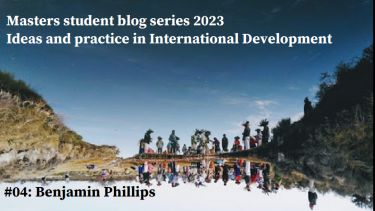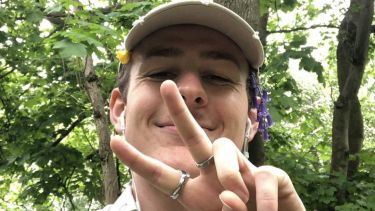Buen Vivir is the Spanish translation of the Quechua expression Sumak Kawsay, meaning “good life”. The understanding of what constitutes a good life stems from an alternative way of thinking which emphasises the Indigenous, the anti-colonial, and the environmental. suggests that individuals should prioritise social responsibilities, ethical commitments, and a relationship with the natural environment.
By proposing a new contract in which nature and society are not considered separate from one another, sustainable development is encouraged. However, this conception of development differs from Western economic growth conceptions, focusing on developing communities in line with their own values rather than imposing Western ideals upon them, since development as an academic concept ‘does not exist’ in the languages of Indigenous communities (Walsh, 2010).
Digital inequality is considered a significant barrier to development in both developed and developing states, limiting access to key resources and services, and being a barrier to economic development - the crux of the European perspective. However, some scholars are wary of Information Communications Technology for Development, or ICT4D, rhetoric as a Trojan horse aiming to embed neoliberal commercialisation that addresses users as consumers rather than as citizens (Poveda & Svensson, 2012).
By reimagining digital inequality through the lens of Buen Vivir, it is possible that the reappropriation of ICT4D can help to realise Indigenous goals and not Western imposition of world market dominion by affording them greater agency in the preservation of their land, culture, and knowledge. It has enabled the preservation of one of the most sacred ancestral Wixaritari lands in Mexico – Wirituka Desert, .
The Indigenous Wixárika, or Huichol, people of San Luis Potosí formed the and broadcasted digital content through social media to garner international support against concessions for Canadian mining companies, resulting in their suspension by the government. They were also able to , customarily done in smaller groups, through such communications channels. The ICT appropriations made by the Wixárika increased their autonomy over cultural preservation and were crucial tools in achieving community goals that ran contrary to the plans of the national government or international corporations (Pérez-García, 2021). Successful defence against structural violence offers evidence that can be drawn upon by future Indigenous appropriators.
In its immediacy, digital equality can be vital in empowering Indigenous communities to preserve their way of life, but greater considerations must be afforded in the long-term if digitalisation is to be reconciled with the environmental tenet of Buen Vivir. The environmental impact of sustaining ICT systems necessary for digital equality extends not just to production of digital technology but its disposal too. Rare earth metals necessary in production such as lithium and cobalt have environmental costs to their extraction, and improper disposal in landfills - more prominent in the developing world - has the ‘potential for toxic substances to leach or otherwise be emitted’ (Williams et al, 2008). Thus, while ICT can be appropriated for anti-colonial Indigenous development, great care must be taken to prevent digital dependency perpetuating harmful supply chains at the expense of the environment and those dependent on it.
It is vital that the humanistic face of ICT4D does not permit the implementation of a neo- modernisation agenda that forces Western ideas of sustainability on marginalised Indigenous communities that have historically upheld sustainable lifestyles. By recognising the coexistence of multiple perspectives through the lens of Buen Vivir, there is an opportunity to decolonise ICT4D for use in cultural and ecological preservation in a plurality of ways specific to their own sociocultural context.
Bibliography
- Pérez-García, Lorena. '' arXiv.org, August 23, 2021.
- Walsh, Catherine. '' Development 53, no. 1 (2010): 15–21. p.17
- Williams, Eric, Ramzy Kahhat, Braden Allenby, Edward Kavazanjian, Junbeum Kim, and Ming Xu. '' Environmental Science & Technology 42, no. 17 (2008): 6446–54. p.6447
- Poveda, Oriol & Svensson, Jakob. (2012). ''
Written by Benjamin Phillips, an International Development (Public Health) masters student.


